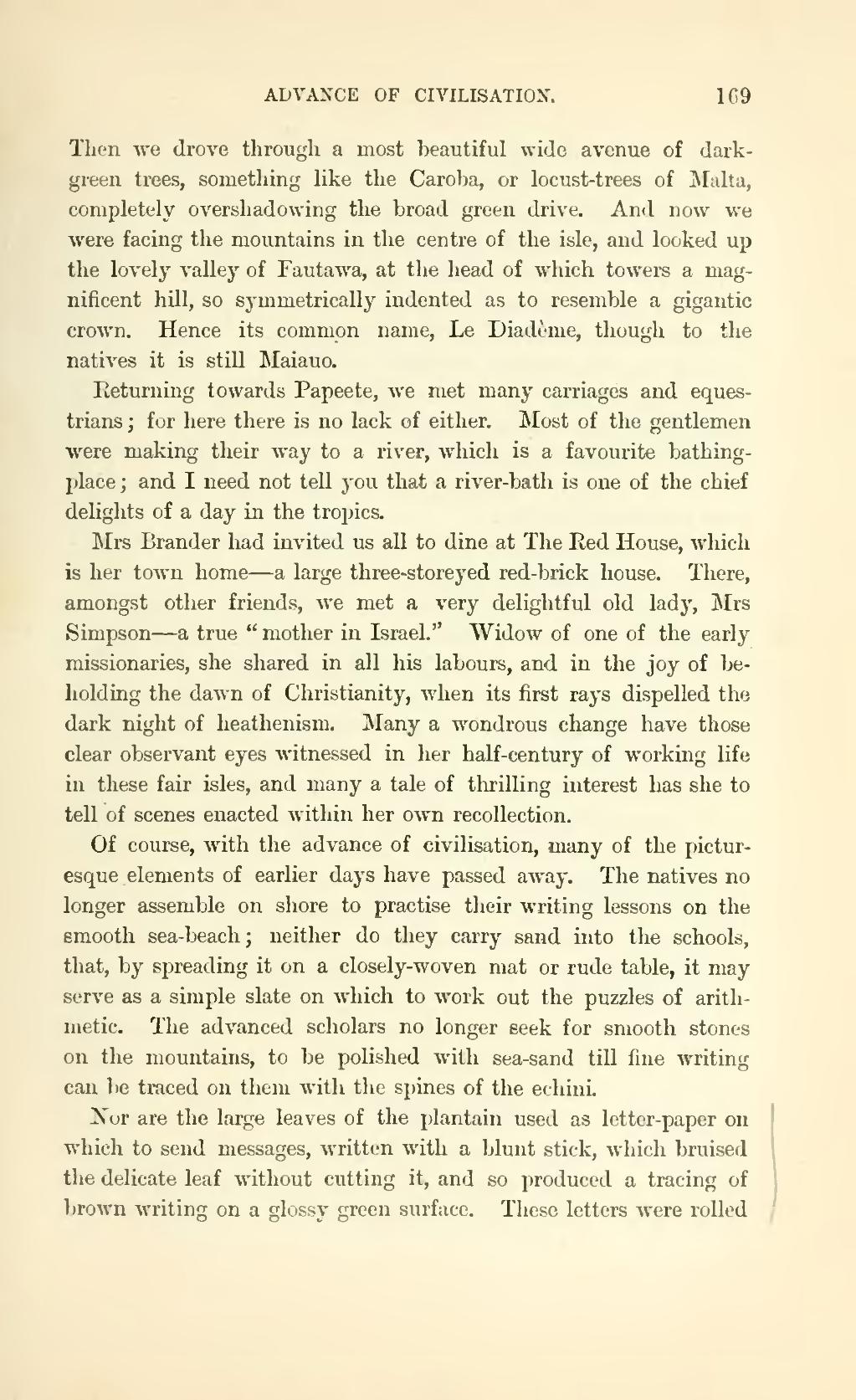Then we drove through a most beautiful wide avenue of dark-green trees, something like the Caroba, or locust-trees of Malta, completely overshadowing the broad green drive. And now we were facing the mountains in the centre of the isle, and looked up the lovely valley of Fautawa, at the head of which towers a magnificent hill, so symmetrically indented as to resemble a gigantic crown. Hence its common name, Le Diadème, though to the natives it is still Maiauo.
Returning towards Papeete, we met many carriages and equestrians; for here there is no lack of either. Most of the gentlemen were making their way to a river, which is a favourite bathing-place; and I need not tell you that a river-bath is one of the chief delights of a day in the tropics.
Mrs Brander had invited us all to dine at The Red House, which is her town home—a large three-storeyed red-brick house. There, amongst other friends, we met a very delightful old lady, Mrs Simpson—a true "mother in Israel." Widow of one of the early missionaries, she shared in all his labours, and in the joy of beholding the dawn of Christianity, when its first rays dispelled the dark night of heathenism. Many a wondrous change have those clear observant eyes witnessed in her half-century of working life in these fair isles, and many a tale of thrilling interest has she to tell of scenes enacted within her own recollection.
Of course, with the advance of civilisation, many of the picturesque elements of earlier days have passed away. The natives no longer assemble on shore to practise their writing lessons on the smooth sea-beach; neither do they carry sand into the schools, that, by spreading it on a closely-woven mat or rude table, it may serve as a simple slate on which to work out the puzzles of arithmetic. The advanced scholars no longer seek for smooth stones on the mountains, to be polished with sea-sand till fine writing can be traced on them with the spines of the echini.
Nor are the large leaves of the plantain used as letter-paper on which to send messages, written with a blunt stick, which bruised the delicate leaf without cutting it, and so produced a tracing of brown writing on a glossy green surface. These letters were rolled
